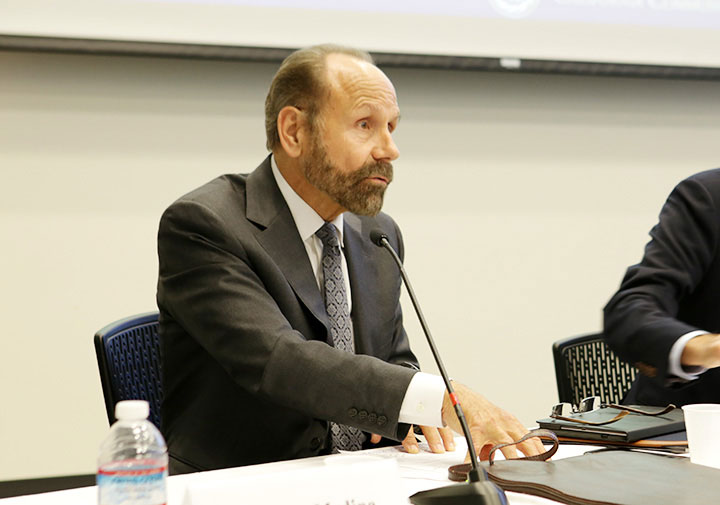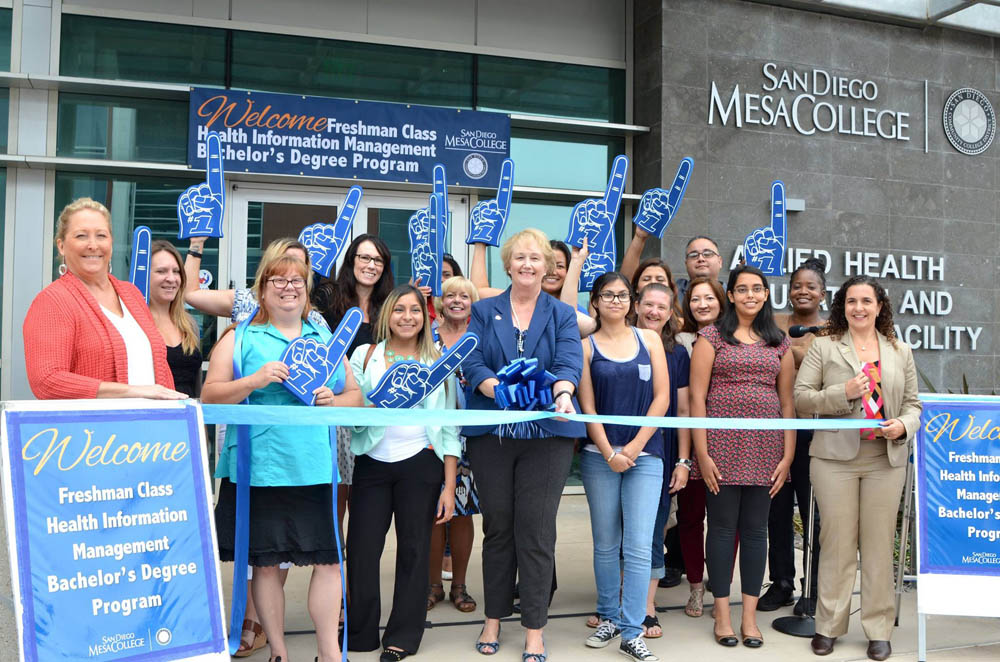
Senate Bill 769 would expand California’s community college baccalaureate pilot program from 15 to 30 programs and remove the current sunset, scheduled for 2023. State Senator Jerry Hill (D-San Mateo), introduced the bill to address the state’s workforce needs.
"California urgently needs more graduates with four-year degrees to the meet the state’s workforce demands," said Senator Hill. "This bill increases the opportunities for more students to earn the four-year degrees that lead to the jobs that fuel California’s economy."
Senate Bill 850, authored by Senator Marty Block and signed by Governor Jerry Brown in 2014, established California’s baccalaureate pilot program. When Block chose not to run for re-election in 2016, Sen. Hill gladly stepped forward in support of extending and expanding the pilot program.
One of the key provisions of Sen. Hill’s bill is the removal of the sunset provision. This would allow more time for the various pilot programs to fully develop. Under the current timeline, some prospective students have expressed hesitancy to enroll in one of the pilot programs in the future for fear that they may not complete their degree program before the sunset provision. Senator Hill says expanding the pilot program from 15 to 30 programs will also allow the state to better assess its effectiveness by providing a larger sample size. The Legislative Analyst’s Office is scheduled to conduct a preliminary review of the pilot program in 2018 and then again in 2022.
SB 769 would also remove some what many consider “unreasonable barriers” to expanding the current pilot program in the future. The bill would allow community colleges to offer some of the same degrees currently available at California State University campuses – but when those programs are located more than 100 miles away. The bill would also allow participating colleges in the pilot program to offer more than one degree.
San Diego Community College District Chancellor Constance Carroll says there is strong demand for the new degree programs.
“The community college baccalaureate effort is a win-win situation for California,” said Chancellor Carroll. “We have considerable information from the pilot program demonstrating the need for this type of workforce training, the support of employers, and the diversity and enthusiasm of the students.”
Chancellor Carroll chaired the statewide campaign in support of SB 850 and is co-chairing a similar effort on behalf of the new bill along with Dr. Judy Miner, Chancellor of the Foothill-De Anza Community College District. They represent a large group of supporters statewide.
Chancellor Carroll says the initial cohort of students in San Diego Mesa College’s Health Information Management program is highly diverse and includes many who are the first in their family to attend college. Launched in 2015, the program prepares students to work at a management level in a variety of healthcare settings and with starting salaries ranging from $83,000 to $144,000. Employers, including local healthcare providers and hospitals, say there is strong demand for well-trained and diverse graduates. Mesa College has offered a highly popular two-year degree in Health Information Technology since the 1960s.
Across the state, the 10 pilot colleges that have programs underway have seen similarly diverse cohorts of students. Among the 206 students enrolled statewide, 57 percent are from underserved ethnic groups and 72 percent are female. The other 5 colleges in the pilot program are currently recruiting students and expect to launch programs this fall.
As policymakers consider accelerating the baccalaureate pilot program, affordability is a key consideration. Participating students pay approximately $10,560 in fees and tuition for their four-year degree, a fraction of the cost of private universities. On average, California State University in-state students will pay $27,036 for four years of study.
Currently, 22 other states allow community colleges to offer four-year degrees in workforce fields. As is the case in many of those states, SB 850 limits the programs that can be offered by California community colleges to specific career-technical fields such as dental hygiene, automotive technology, and airframe manufacturing technology. None of these programs are offered at the California State University or University of California systems.
Colleges participating in the pilot program include: Antelope Valley College (airframe manufacturing technology), Bakersfield College (industrial automation), Cypress College (mortuary science), Feather River College (equine industry), Foothill College (dental hygiene), Mesa College (health information management), MiraCosta College (biomanufacturing), Modesto Junior College (respiratory care), Rio Hondo College (automotive technology), Santa Ana College (occupational studies), Santa Monica College (interaction design), Shasta College (health information management), Solano Community College (biotechnology), Skyline College (respiratory care), and West Los Angeles College (dental hygiene).
